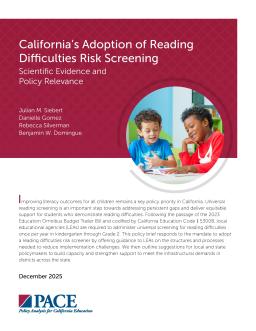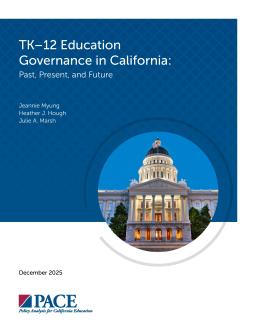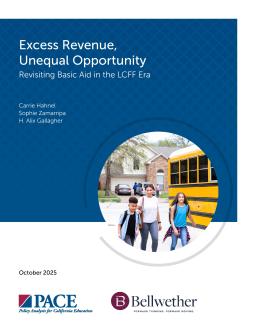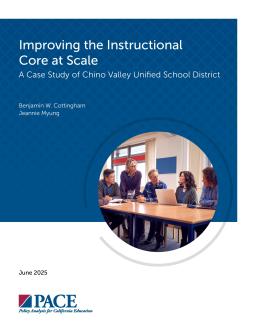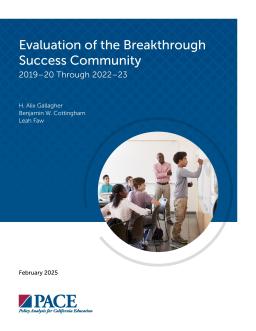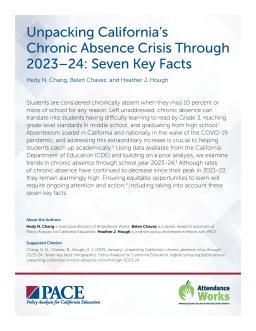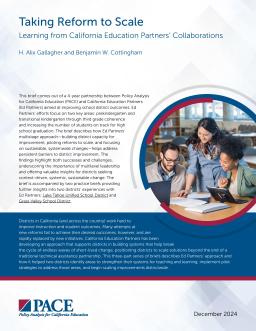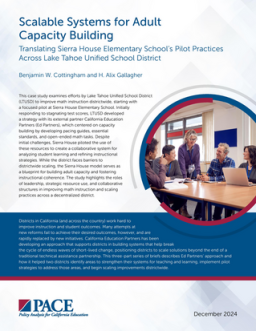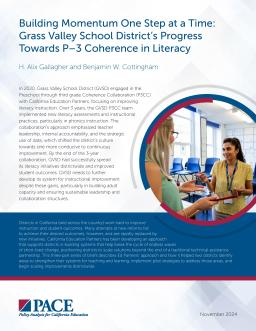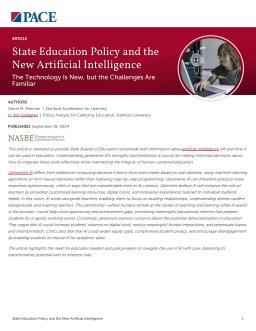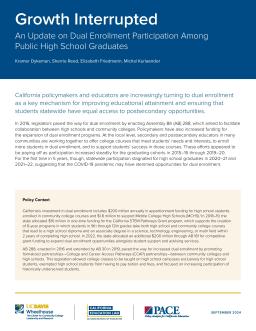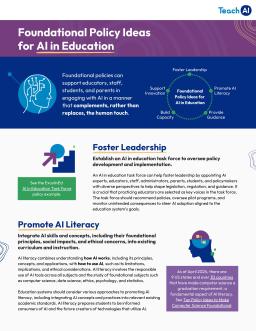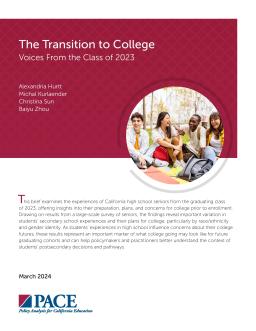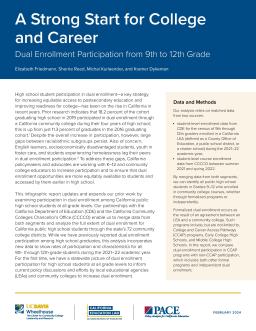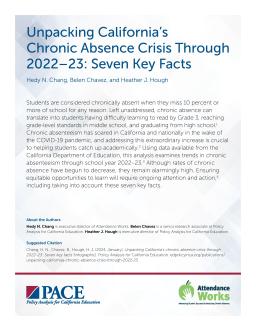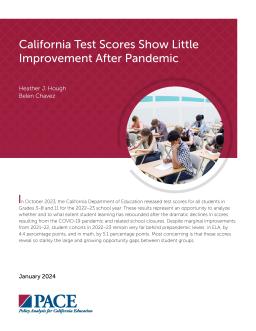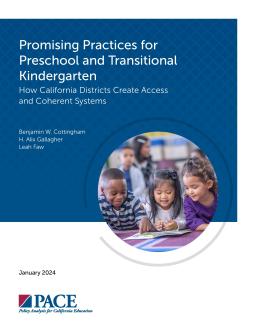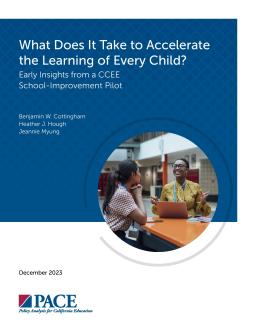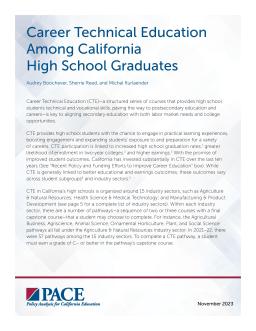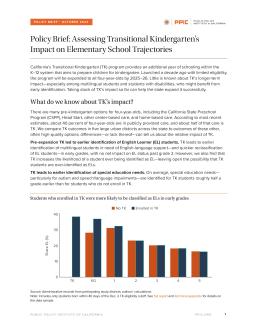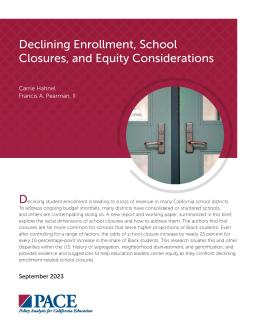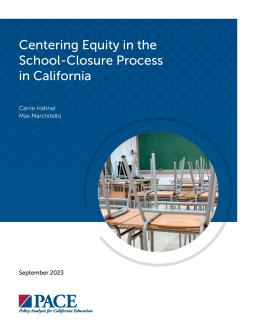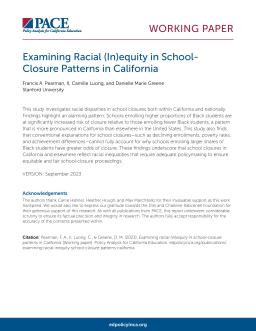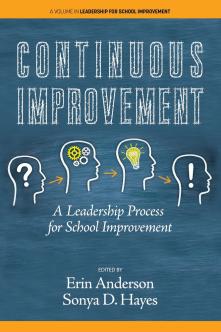Summary
California now requires annual K–2 screening for reading difficulties to identify students early and guide support. This brief outlines key policy elements, considerations for multilingual learners, and implementation steps for districts, emphasizing training, coherent MTSS systems, and state investment to ensure effective, equitable literacy improvement. It cites persistent literacy gaps as motivation and urges continuous evaluation of screeners and district capacity over time.
Summary
Summary
This report analyzes how California’s school finance system—built to promote equity through the Local Control Funding Formula (LCFF)—continues to produce unequal opportunities due to property wealth disparities. It explores how “basic aid” districts, which generate more local tax revenue than the state funding formula provides, have accumulated growing advantages over other districts. Drawing on fiscal and demographic analysis, the report highlights how these patterns shape resource gaps and teacher labor markets across the state and offers policy options to promote greater funding equity.
Summary
Summary
Summary
Absenteeism soared in California and nationally in the wake of the pandemic, and addressing this extraordinary increase is crucial to helping students catch up academically. Using data available from the California Department of Education and building on prior analysis, we examine trends in chronic absence (students missing school more than 10 percent of the time) through school year 2023–24. Although rates of chronic absence have continued to decrease since their peak in 2021–22, they remain alarmingly high. Ensuring equitable opportunities to learn will require ongoing attention and action.
Summary
Summary
Summary
Summary
Optimists believe AI will partner with teachers to provide customized learning resources, digital tutors, and innovative experiences tailored to individual students’ needs. Pessimists express concerns about the potential dehumanization of education, arguing that AI could increase students' reliance on digital tools, reduce meaningful human interactions, and perpetuate biases and misinformation. In this article, the authors highlight the need for education leaders and policymakers to navigate the use of AI with care, balancing its transformative potential with its inherent risks.
Summary
California policymakers and educators are promoting dual enrollment to boost educational attainment and equal access to postsecondary opportunities. Assembly Bill 288, enacted in 2016, encouraged high school-community college collaboration, and funding for dual enrollment has increased. Local educators are working to expand programs and support student success. Participation grew steadily from 2015–16 to 2019–20, but stalled in 2020–21 and 2021–22, likely due to the COVID-19 pandemic's impact on dual enrollment opportunities.
Summary
Within the TeachAI Policy Workgroup, PACE has facilitated the development of AI policy informational briefs aimed at ensuring the effective, safe, and responsible integration of AI in education. These briefs offer guidance to education leaders and policymakers, emphasizing the importance of crafting policies that prioritize teaching and learning. The briefs provide insights derived from current research and landscape analysis of AI use in TK–12 educational settings, addressing common questions and centering around five guiding principles for developing responsible AI policies in education.
Summary
Summary
This infographic, from PACE and Wheelhouse, examines participation in dual enrollment among 9th to 12th graders. The data show that about 10 percent of all California public high school students enrolled in community college courses in 2021–22, but these rates vary from zero to 97 percent depending on locality. Analysis demonstrates that dual enrollment participation is unequally distributed across racial/ethnic and socioeconomic groups as well as geography. The evidence demonstrates the potential of improving early access to dual enrollment in 9th grade for closing these equity gaps.
Summary
Chronic absenteeism has soared in California and nationally in the wake of the COVID-19 pandemic, and addressing this extraordinary increase is crucial to helping students catch up academically. Using data available from the California Department of Education, this analysis examines trends in chronic absenteeism through school year 2022–23.3 Although rates of chronic absence have begun to decrease, they remain alarmingly high. Ensuring equitable opportunities to learn will require ongoing attention and action, including taking into account these seven key facts.
